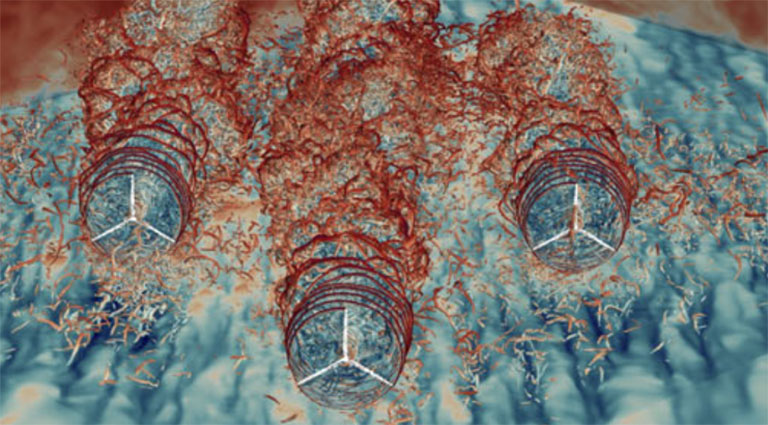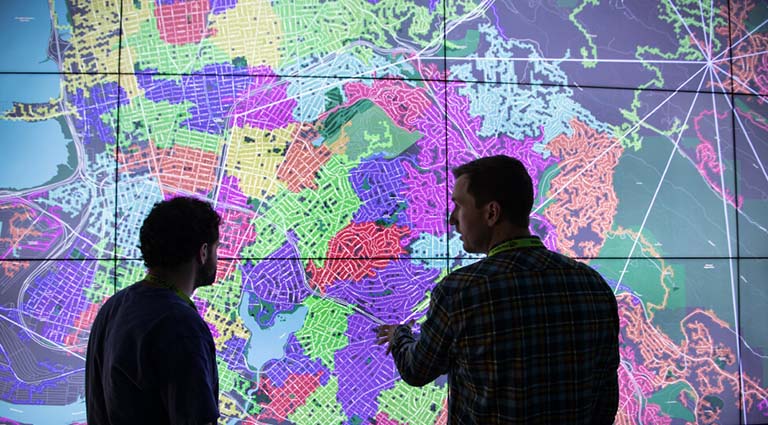Research
NREL's computational science experts accelerate energy innovations through advanced computing capabilities that harness rapid advancements in big data, artificial intelligence, and information technology.
Computational methods are key to advancing the science and engineering of energy efficiency, sustainable transportation, renewable power technologies, and optimizing energy systems.
Enabling High-Impact Research
NREL data scientists, engineers, and mathematicians perform basic and applied research and develop crosscutting capabilities to enable rapid, breakthrough science across NREL and at the U.S. Department of Energy.
Our researchers actively publish, lead conferences, and collaborate across the national laboratory complex—as well as with academic and industry experts—to develop transformative insights into energy efficiency and renewable energy data that lead to technological improvements, economic competitiveness, energy equity, and national security.
Providing the Service of Computing
NREL computational scientists are deeply embedded in a wide range of research, working across theory and experiment to develop cross-disciplinary data acquisition and analysis tools and to tie these together with model development.
Our high-performance computing (HPC) systems are built to support varied and data-centric workloads, embrace virtualized and containerized computing, enable hybridized HPC-on-premise/commercial cloud workflows, and empower tight integration between experiment and computing.

Only at NREL: National Solar and Wind Data Access
NREL also supports cross-disciplinary research by hosting extensive solar, wind, and materials databases.
National Solar Radiation Database. The National Solar Radiation Database features a serially complete collection of hourly and half-hourly values of meteorological data and the three most common measurements of solar radiation: global horizontal, direct normal, and diffuse horizontal irradiance.
Wind Integration National Dataset Toolkit. This toolkit includes data on meteorological conditions and turbine power for more than 126,000 sites in the continental United States from 2007 to 2013.

The World's Largest Experimental Materials Database
NREL consolidated more than 140,000 data sample entries into one extensive experimental materials database—the High Throughput Experimental Materials Database—organizing a decade's worth of research into the largest such database in the world. This database accelerates data-driven research involving thin-film materials.
Advancing the Science of Computing
Advanced computing enables scientists and engineers to tackle challenges that cannot be addressed through traditional experimentation alone, whether due to scale, complexity, or practicality. Through our own research and the vibrant research community supported by the Advanced Scientific Computing Research program at the Department of Energy, NREL is part of ensuring U.S. leadership in supercomputing, computational science, and advanced networking for science. In particular, we provide open-access supercomputing and network facilities that are specially built for handling enormous quantities of scientific data.
Focus Areas
NREL's computational science capabilities are focused in the following areas.
Share






